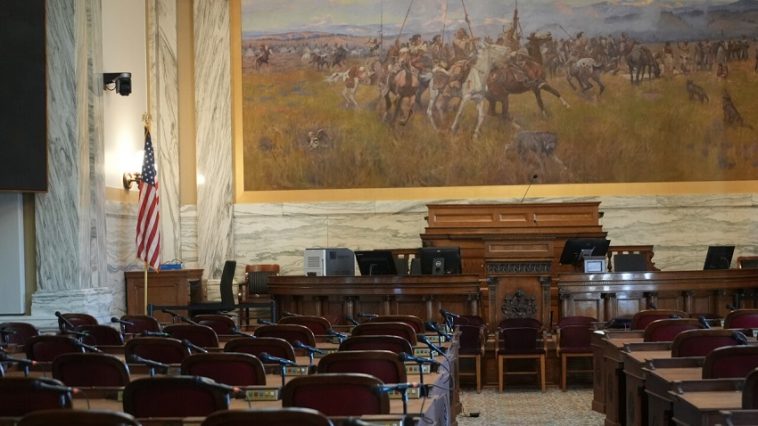Missoula, MT – With just over a month before the start of the 2025 legislative session, Montana lawmakers have begun laying the groundwork for how the session will operate. On Tuesday, the House and Senate Rules Committees convened at the State Capitol to advance proposed rules, taking initial steps to address concerns raised during the 2023 session.
Among the most significant changes discussed was an amendment to clarify when a governor’s veto is officially “received” by the Legislature. This change, approved by the Joint Rules Committee, specifies that a veto is considered received once it is time-stamped by either the clerk of the House or the secretary of the Senate. The amendment aims to resolve lingering questions from the 2023 session, when a lawsuit claimed that the Legislature had not received Governor Greg Gianforte’s veto of Senate Bill 442 before the Senate adjourned on a surprise sine die motion. A district court judge subsequently ordered a veto override poll, ruling that lawmakers had not been given a legitimate opportunity to attempt to overturn the veto.
Democratic lawmakers proposed that a veto should only be considered received once it has been formally read across the rostrum in either the House or Senate. Senate Minority Leader Pat Flowers, D-Belgrade, argued that this would ensure transparency and prevent any delays in processing vetoes. However, Republicans on the committee rejected the idea, fearing that adding another step to the process could allow for delays or “gamesmanship.”
Rep. Ed Buttrey, R-Great Falls, opposed the Democratic proposal, stressing the importance of a clear and efficient process. Sen. Steve Fitzpatrick, R-Great Falls, who will serve as House Majority Leader in 2025, also warned that the proposal could push more veto override attempts into mail polls after the session, a process he described as less effective and harder to secure votes for.
Another significant rule change discussed during the session would alter the procedures surrounding sine die motions. Traditionally, sine die motions, which end the legislative session, have been non-debatable. However, the Senate Rules Committee advanced a proposal to allow for two supporters and two opponents to speak before the motion is voted on. Proponents of the change argued that it would offer lawmakers a better understanding of what remained unresolved before ending the session.
In response to a Montana Supreme Court decision earlier this year, Republicans also voted to amend the rules regarding bills that are deemed essentially identical to ones that have already failed. The court had ruled that the Legislature acted in “bad faith” when it reintroduced provisions from previously defeated bills in a new law. Republican leaders argued that the court’s decision infringed on the separation of powers and that the Legislature should have the final say on whether a bill is too similar to one that has already been rejected.
One of the more controversial amendments discussed by the committees involved policies regarding restrooms for transgender lawmakers. Rep. Jerry Schillinger, R-Circle, proposed a rule that would designate restrooms based on biological sex at birth. The proposal was approved by the Senate Rules Committee but failed in the House. Supporters of the amendment argued it would ensure that women have dedicated spaces, while opponents, including Rep. David Bedey, R-Hamilton, warned that it would be a distraction from the Legislature’s work.
Additionally, the Senate Rules Committee voted down a proposal to make it harder to pass a “blast motion,” which allows a bill that has been rejected by a committee to be brought to the full Senate for debate. The proposal, introduced by Sen. Barry Usher, R-Yellowstone County, suggested raising the threshold to 28 votes out of 50 to bring a bill to the floor, mirroring the higher requirement in the House. However, some senators, including Sen. John Esp, R-Big Timber, argued that the current system, which only requires a simple majority, fosters debate and allows for the effective use of persuasion.
While the proposed rule changes have been advanced by the Rules Committees, they are not final. The full House and Senate will have the final say on whether to adopt the changes once the session begins in January. With a new session on the horizon, lawmakers are continuing to fine-tune the rules that will govern their work in 2025.



